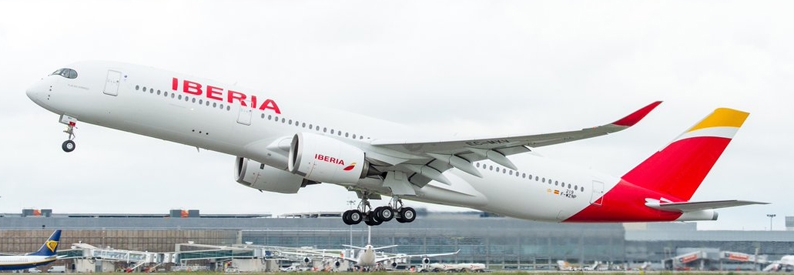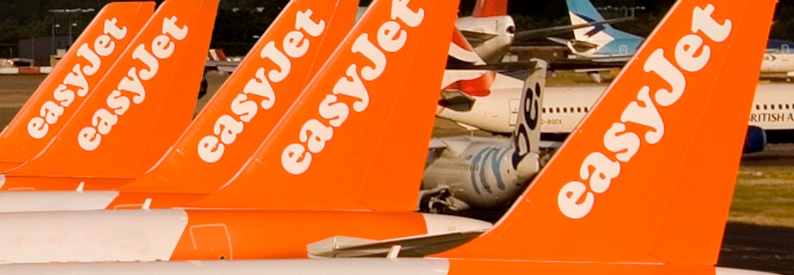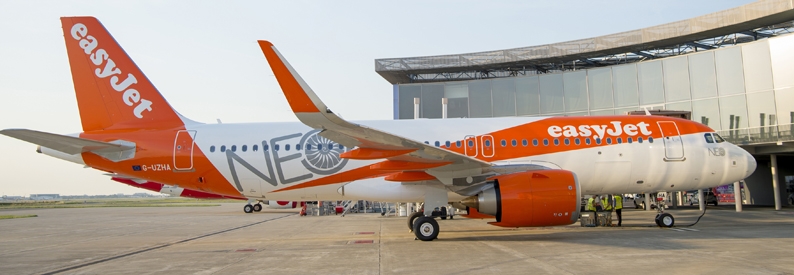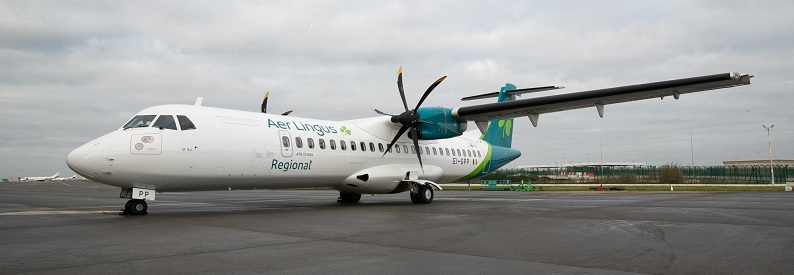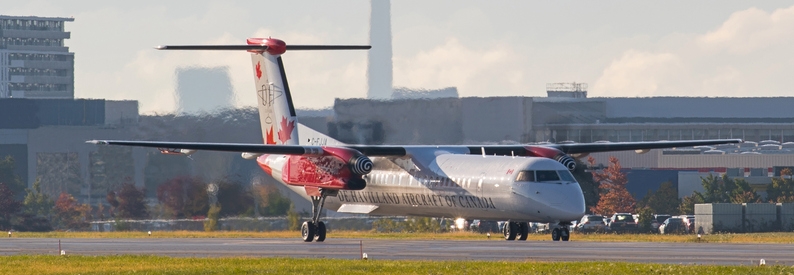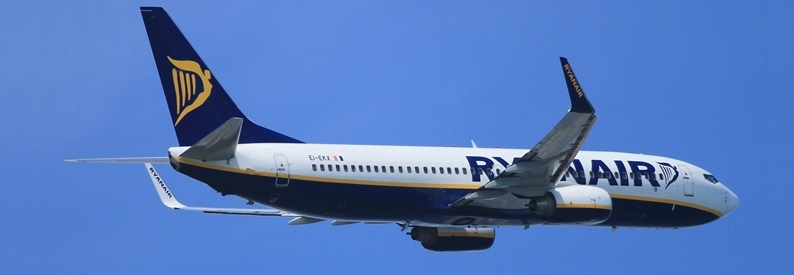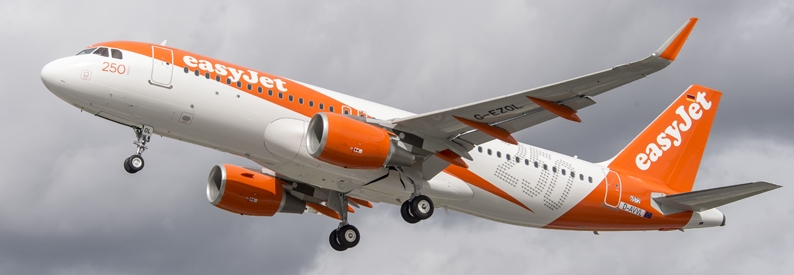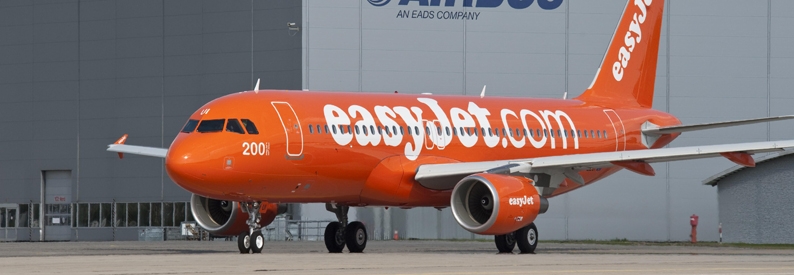easyJet (London Luton) has announced it is expanding its UK network by opening a new three-A320-200 base at Birmingham, GB in March 2024, marking its first UK base opening since the Covid-19 pandemic.
The move follows easyJet's return to growth in the UK this summer, where it will operate its largest UK flying programme to date with around 8% more capacity than pre-pandemic, flying one million more seats and operating 57 new routes, including 23 from the UK, the airline said in a statement.
The budget carrier said the new base - its ninth in the UK - would strengthen its position in the UK market and enable it to launch more new routes to some of Europe's most popular leisure destinations next year. More details were not disclosed. easyJet already serves key domestic and international routes from Birmingham, including Amsterdam Schiphol (Netherlands), Geneva (Switzerland), Milan Malpensa and Naples Capodichino (Italy), Lisbon and Faro (Portugal), and Palma de Mallorca (Spain). easyJet's eight other bases in the UK include London Gatwick, London Luton, Bristol International, Manchester, Liverpool, Glasgow International, Edinburgh, and Belfast International.
According to ch-aviation Commercial Aviation Operator Capacity Data data, easyJet already holds the fourth-largest market share at Birmingham, with a 7% share of weekly airline seats. Jet2 (United Kingdom) is the largest carrier at Birmingham, with a 22.4% market share, followed by Ryanair with 19.4% and TUI Airways with 19.3%.
Fleet update
Meanwhile, easyJet will take delivery of eleven leased A320-200s between now and the first quarter of FY 2024, the airline disclosed in its half-year results ending March 31, 2023, published on May 18.
This would make up for any shortfalls in new aircraft deliveries from Airbus. easyJet has an order book of 163 firm orders - 130 for A320neo and thirty-three A321neo. This includes an aircraft purchase approved in summer 2022, securing 56 aircraft deliveries with the conversion of eighteen A320neo into A321neo for delivery between FY2026 and FY2029.
In addition to the accelerated delivery of two aircraft from FY2025 to FY2023, easyJet said it agreed to take a further two FY2025 aircraft deliveries in FY2024.
easyJet's total fleet on March 31, 2023, comprised 328 aircraft (versus 320 jets on September 30, 2022, excluding three A319-100s held on a zero rent basis).
The increase was driven by:
- delivery of five new A320neo aircraft, including accelerating two FY 2025 scheduled orders into FY 2023;
- acquisition of three mid-life A320-200 leased aircraft;
- re-entry into the fleet of one former easyJet A319-100 and the return to service of three A319-100s held on a zero-rental agreement in 2022.
Four older leased aircraft exited the fleet at the end of their lease term (two A319-100s and two A320-200s) as easyJet continues to retire older, less efficient aircraft.
According to the ch-aviation Commercial Aviation Aircraft Ownership Data module, the easyJet UK fleet at present comprises 173 aircraft, including fifty-seven A319-100s; seventy-two A320-200s (with four on order); thirty-four A320-200Ns (with 140 on order), and ten A321-200NXs (with 33 on order).
Half-year results
easyJet posted an improved first-half performance for the six months to March 31, 2023. "Demand for easyJet's flights and holidays has continued to grow in the half, resulting in more than a GBP120 million pound (USD149 million) improvement in our performance as well as a GBP1 billion (USD1.2 billion) revenue improvement year-on-year," commented Chief Executive Officer Johan Lundgren.
Highlights include the following:
- Headline loss before tax was GBP411 million (USD511 million);
- GBP200 million (USD248 million) net debt with GBP3.5 billion (USD4.3 billion) in cash and money market deposits;
- Total revenue increased by 80% to GBP2.689 million (USD3.343 million) predominantly due to pricing strength, increased flown capacity, improved load factors and ancillary products continuing to deliver incremental revenue;
- Group headline costs increased by 52% to GBP3.1 million (USD3.8 million), primarily due to the increase in flown capacity, significantly increased fuel costs and industry-wide inflationary pressures, combined with resilience measures as part of the summer 2023 ramp-up preparations and 15 wet-lease aircraft which were within the fleet in October 2022.
During 2Q easyJet flew 17.7 million seats compared to 14.8 million seats in the same period last year. Load factors were 88% (2Q FY22: 78%) due to increased customer demand and restriction-free travel.
Based on current high levels of demand and strong bookings, easyJet anticipates exceeding current market profit expectations of GBP260 million (USD323 million) for FY 2023.
- Type
- Base
- Aircraft
- Destinations
- Routes
- Daily Flights

